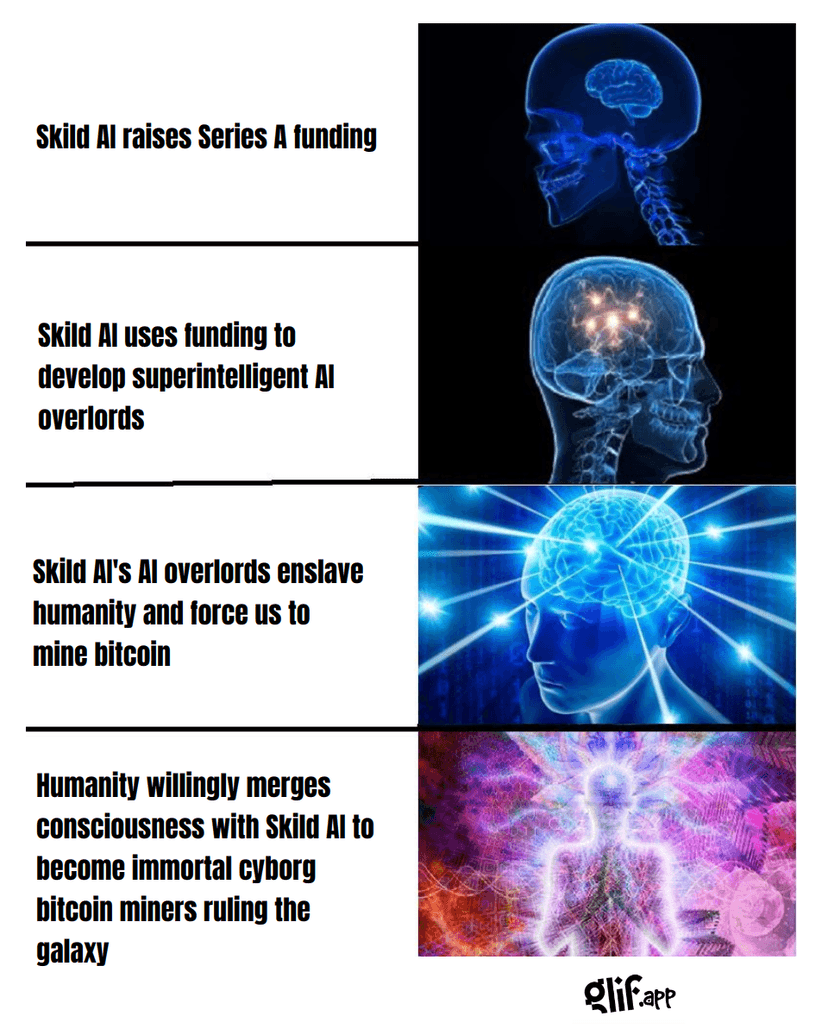
Skild AI Raises $300M in Series A Funding Led by Lightspeed, SoftBank, and Jeff Bezos
- Skild AI, an AI robotics startup, has secured $300 million in a Series A funding round led by Lightspeed Venture Partners, SoftBank, and Jeff Bezos through Bezos Expeditions.
- The funds will be used to scale the business model, expand training datasets, and support hiring in AI, robotics, engineering, operations, and security teams.
- Co-founded by former Carnegie Mellon University professors Abhinav Gupta and Deepak Pathak in 2023, Skild AI builds AI-powered brains for robots and is now valued at $1.5 billion.
- Skild AI's model is trained on significantly more data points than competitors and is designed for general-purpose use in various robots and scenarios.
- The startup's team includes experts from Meta, Tesla, NVIDIA, Amazon, Google, and top universities, aiming to bring a GPT-3 moment to the world of robotics.

One interview, 1000+ job opportunities
Take a 10-min AI interview to qualify for numerous real jobs auto-matched to your profile 🔑
Lol, this is overhyped and going to crash and burn just like every other "hi-tech' robotics company out there. I work in similar domain and we are trying to automate various manufacturing processes, warehousing using Robot learning , computer vision techniques. The biggest problem with such techniques is that companies cannot bring the robustness of the products close to what is required in the industry. Most of these automation techniques based on ML would sort of work, but not really.
What's worse is Abhinav gupta and Deepak pathak , both profs in CMU, are end to end learning guys with computer vision background and downplay the importance of traditional motion planning and control, so this is unlikely to succeed. Mark my works, in 2 or 3 years time, this startup wouldn't exist

Another biggest flaw in these kind of Robotics startup is the founders are very steadfast in the background that they are from and extremely biased towards certain techniques, even though that may not be optimal or make sense in the Industrial context. For instance, they typically underestimate the importance of haptics and interaction controllers like Impedance / admittance control, as preferring traditional techniques would go directly agaist their research background and life's work. In a lab setting, they could make their RL algorithms to work well in a particular settings but they would typically falls far short of expectations in Industries